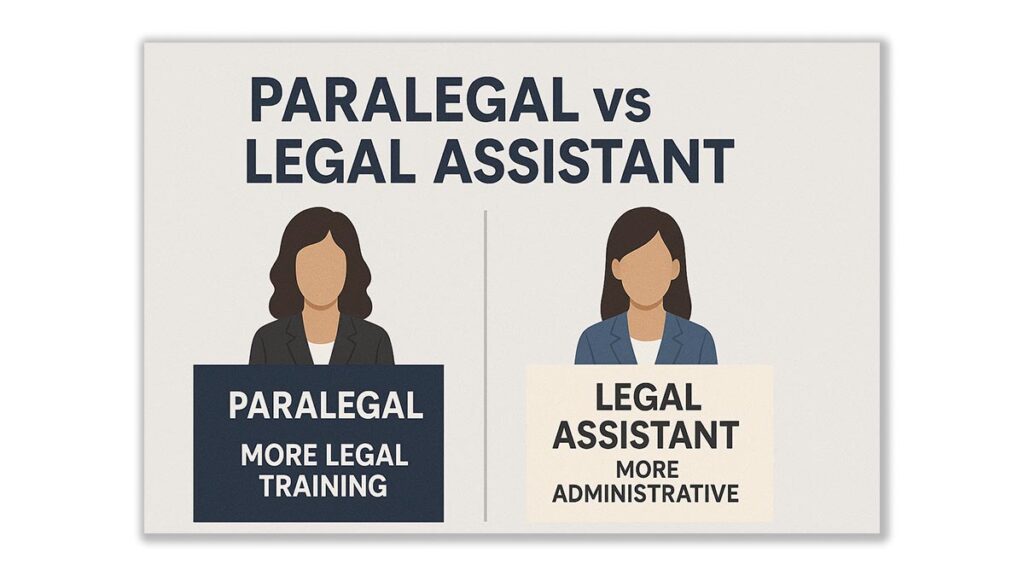The phrase “paralegal divorce close” highlights the essential role paralegals play in supporting family law attorneys. Paralegals assist with document preparation, client communication, and case management, ensuring a smoother and more efficient divorce process. This article explores how paralegals contribute to divorce cases, their responsibilities, and the benefits of employing paralegals for family law practices.
What Does “Paralegal Divorce Close” Mean?

In the context of family law, paralegal divorce close refers to the critical assistance paralegals provide during the final stages of a divorce case. From preparing court documents to coordinating with clients and attorneys, paralegals help streamline the process, ensuring that cases are resolved efficiently and accurately.
Responsibilities of a Paralegal in Divorce Cases
- Document Preparation: Paralegals draft essential legal documents, such as divorce petitions, financial affidavits, and settlement agreements. These documents require precision and compliance with legal standards, which paralegals ensure under attorney supervision.
- Client Communication: Acting as a bridge between clients and attorneys, paralegals handle client inquiries, gather necessary information, and provide updates on case progress. This consistent communication helps alleviate client concerns during emotionally challenging times.
- Case Management: Paralegals organize case files, manage deadlines, and coordinate court filings. Their organizational skills ensure that cases progress smoothly, reducing delays and potential errors.
The Value of “Paralegal Divorce Close” for Clients
For clients navigating divorce, having access to paralegal support offers several advantages:
- Cost Efficiency: Paralegals provide cost-effective assistance by handling routine legal tasks at a lower rate than attorneys. This makes legal services more accessible while maintaining high-quality support.
- Faster Resolution: With paralegals managing administrative and preparatory work, attorneys can focus on negotiations and court representation, expediting the divorce process.
- Personalized Attention: Paralegals often work closely with clients, offering a more personalized experience and addressing specific concerns that arise during the case.
Ensure your intake team identifies high-quality cases from the start. Schedule a consultation to learn how Regentsrs can help your firm!

Benefits of Employing Paralegals in Family Law Practices
- Enhanced Efficiency: With paralegals handling document preparation and case organization, attorneys can devote more time to client representation and case strategy.
- Improved Client Satisfaction: Paralegals maintain open lines of communication with clients, ensuring they feel supported throughout the divorce process.
- Streamlined Operations: Paralegals reduce the administrative burden on attorneys, allowing firms to manage higher caseloads without compromising quality.
Need highly skilled paralegals for your law firm? Get in touch with us to discuss your firm’s unique needs!
How Regentsrs Enhances Paralegal Support for Divorce Cases
Regentsrs specializes in providing highly skilled paralegals trained in family law practices, including divorce cases. Our paralegals offer exceptional support in document drafting, client communication, and case management, helping law firms deliver efficient and effective legal services. By partnering with Regentsrs, firms can enhance their operations and improve client outcomes.
The concept of paralegal divorce close underscores the indispensable role paralegals play in managing divorce cases efficiently. By handling critical tasks with precision and care, paralegals contribute to smoother processes and better client experiences. Next, explore how virtual paralegal services are transforming family law practices with cost-effective and flexible solutions.

What is the difference between a paralegal and legal assistant
Understanding what is the difference between a paralegal and legal assistant is essential for those seeking legal support or pursuing a career in the legal field. While these roles are often used interchangeably, they have distinct responsibilities, skill sets, and qualifications. This article provides an in-depth exploration of these differences and explains how law firms can benefit from employing both professionals.
Defining the Roles: Paralegal and Legal Assistant
The terms paralegal and legal assistant are frequently used synonymously, but they represent different roles in the legal industry. Both positions provide crucial support to attorneys, yet their responsibilities and qualifications vary.
- Paralegal: A paralegal is a trained professional who assists attorneys with substantive legal work, including case law research, drafting legal documents, and preparing for trials. They often specialize in specific legal areas such as corporate law, family law, or litigation.
- Legal Assistant: A legal assistant typically performs administrative duties to support a law firm’s operations. These tasks include managing schedules, handling correspondence, organizing case files, and ensuring the office runs smoothly.
Understanding the Role of Paralegal Divorce Close vs Legal Assistant
What Is a Paralegal in Divorce Cases?
A paralegal specializing in divorce cases is a trained legal professional who works under the supervision of an attorney. Their primary responsibilities include drafting legal documents, conducting research, and managing case files. In the context of paralegal divorce close vs legal assistant, paralegals are often more involved in the technical aspects of the legal process, such as preparing motions, organizing evidence, and ensuring compliance with court requirements.
What Does a Legal Assistant Do?

On the other hand, legal assistants provide administrative and organizational support to attorneys. Their tasks often include scheduling meetings, handling correspondence, and maintaining case calendars. While they play a vital role in supporting legal teams, their duties in paralegal divorce close vs legal assistant scenarios are generally less focused on direct legal work and more on logistical management.
Key Differences: Paralegal Divorce Close vs Legal Assistant
- Training and Expertise: When comparing paralegal divorce close vs legal assistant, one of the main differences lies in their training and qualifications. Paralegals typically undergo specialized legal education and may hold certifications in family law or divorce proceedings. Legal assistants, while skilled, often have a broader administrative background rather than formal legal training.
- Scope of Work: The scope of work also varies significantly in paralegal divorce close vs legal assistant roles. Paralegals are equipped to handle substantive legal tasks, such as drafting legal pleadings, assisting in trial preparation, and conducting legal research. Legal assistants focus more on ensuring the smooth day-to-day operation of a law office by managing communications and administrative duties.
- Client Interaction: In paralegal divorce close vs legal assistant, paralegals frequently interact with clients to gather case information, explain procedures, and provide updates on case progress. Legal assistants, while also client-facing, usually handle appointment scheduling and general inquiries rather than detailed legal discussions.
Navigating Paralegal Divorce Close vs Legal Assistant with Confidence
Understanding the nuances of paralegal divorce close vs legal assistant is essential for navigating divorce cases efficiently. Both roles are integral to the legal process, each contributing unique skills and expertise. By choosing the right professionals for your case and leveraging the support of trusted providers like Regents Remote Services, you can ensure a seamless and cost-effective experience. Embrace the clarity of paralegal divorce close vs legal assistant distinctions to optimize your legal strategy and achieve the best possible outcomes.


